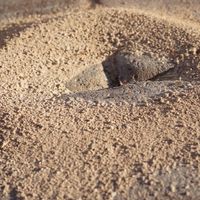Why is my ice maker so slow
Why is my ice maker so slow. If your ice maker is running slow, it can be frustrating and inconvenient.
There are several potential reasons why an ice maker may be running slow, and it’s important to identify the root cause in order to fix the problem.
Why is my ice maker so slow

In this guide, we’ll explore some common causes of a slow ice maker and offer some troubleshooting tips to help you get your ice maker back to working efficiently.
Step 1: Check the water supply
One of the most common reasons for a slow ice maker is a lack of water. If the ice maker is not getting enough water, it will take longer to produce ice. To check the water supply, follow these steps:
- Check the water supply line to make sure it is not kinked or clogged.
- Check the water valve to ensure it is fully open.
- If the water supply line and valve are both in good working order, check the water pressure. If the water pressure is too low, it can affect the ice maker’s performance.
Step 2: Check the ice maker’s filter
If the water supply is not the issue, the next step is to check the ice maker’s filter. The filter helps to remove impurities from the water, which can improve the quality of the ice and prevent clogs in the ice maker. To check the filter, follow these steps:
- Locate the filter (it is typically located in the refrigerator or under the sink).
- Inspect the filter for any visible signs of blockages or damage.
- If the filter is clogged or damaged, replace it with a new one.
Step 3: Check the ice maker’s thermostat
If the water supply and filter are both functioning properly, the next step is to check the ice maker’s thermostat.
The thermostat controls the temperature of the ice maker, and if it is not set correctly, it can affect the ice maker’s performance. To check the thermostat, follow these steps:
- Locate the thermostat (it is typically located behind the ice maker).
- Check the thermostat settings to ensure they are correct.
- If the thermostat settings are incorrect, adjust them as needed.
Step 4: Check for any other issues
If you have checked the water supply, filter, and thermostat and the ice maker is still running slow, there may be another issue at play. Some other potential issues that can affect the ice maker’s performance include:
A clogged or damaged ice maker auger: The auger is the mechanism that helps to move the ice through the ice maker. If the auger is clogged or damaged, it can affect the ice maker’s performance.
A malfunctioning ice maker control board: The control board is the brain of the ice maker, and if it is malfunctioning, it can affect the ice maker’s performance.
A damaged ice maker motor: The motor helps to power the ice maker, and if it is damaged, it can affect the ice maker’s performance.
Step 5: Consult a professional
If you have checked all of the above factors and the ice maker is still running slow, it may be time to consult a professional.
A professional appliance repair technician will be able to diagnose the problem and provide the necessary repairs to get your ice maker back to working efficiently.
FAQs
How often should I replace the ice maker’s filter?
It is generally recommended to replace the ice maker’s filter every six months to a year, depending on the frequency of use and the quality of the water. If you notice that your ice is starting to taste or smell strange, it may be time to replace the filter.
Can I clean the ice maker’s filter instead of replacing it?
In some cases, it may be possible to clean the ice maker’s filter instead of replacing it. However, this is not always the best option, as the filter may have become damaged or may be too clogged to clean effectively.
It is generally recommended to replace the filter on a regular basis to ensure optimal performance.
Is it safe to use a slower ice maker?
While it is not inherently unsafe to use a slower ice maker, it can be inconvenient and may affect the overall performance of your refrigerator.
If you notice that your ice maker is running slow, it is a good idea to troubleshoot the problem and take steps to fix it.
Conclusion
There are several potential reasons why an ice maker may be running slow, and it’s important to identify the root cause in order to fix the problem. By checking the water supply, filter, and thermostat, you can often troubleshoot the issue and get your ice maker back to working efficiently. If you are unable to resolve the problem on your own, it may be time to consult a professional appliance repair technician.
Related Guides




